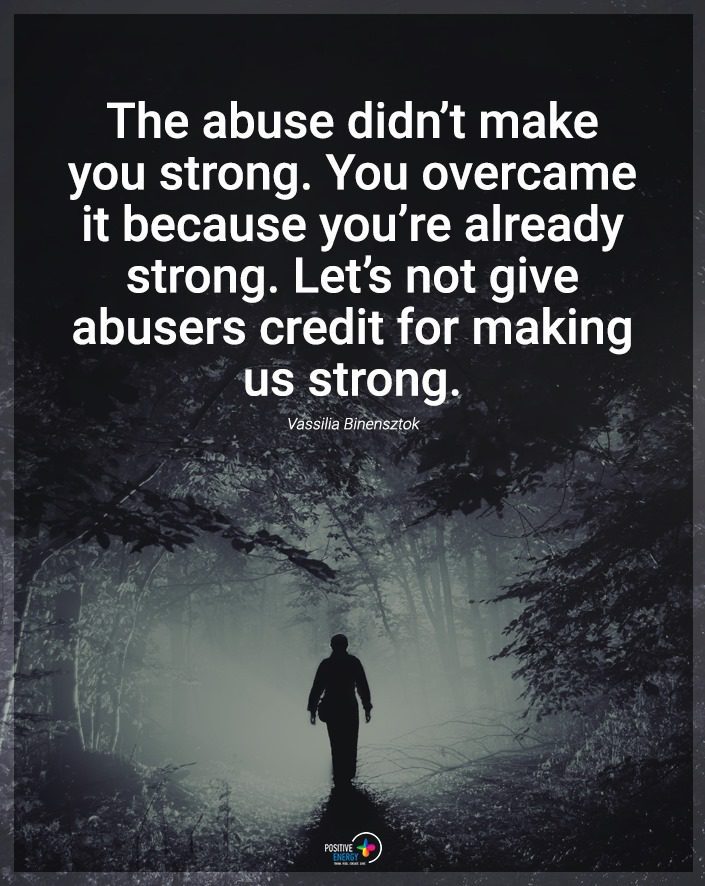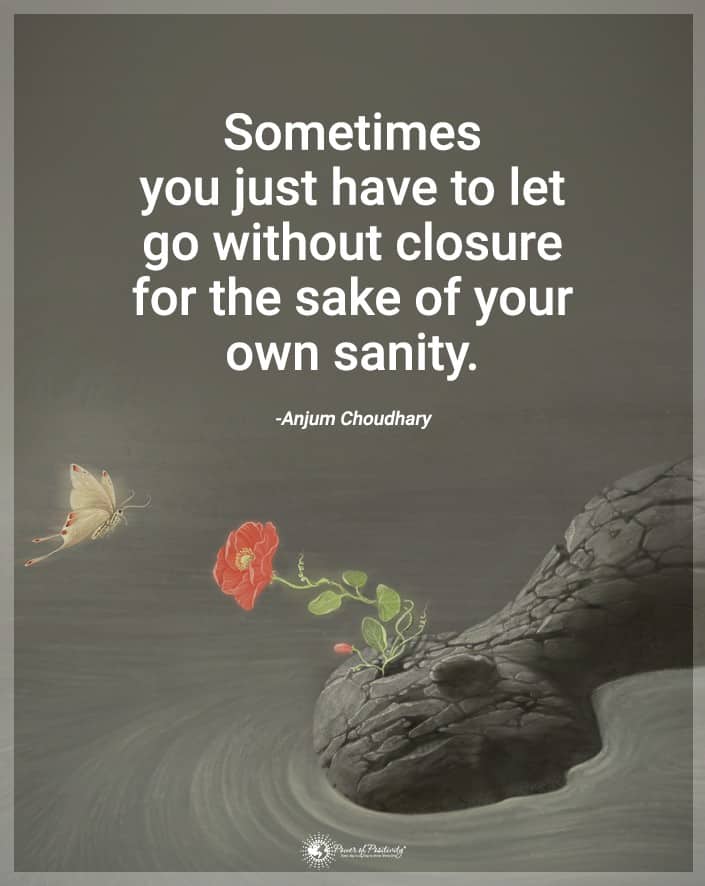Do you ever feel like you stop working on specific issues once you get settled with someone? Are there certain habits that seem innocent but have damaged even the strongest of connections? Do you ever feel like you overlook specific issues until one day they blow up? These things can build up–and over time can destroy relationships
Many people harness bad habits because they don’t seem like they would be an issue. This little thing ends up growing like a tumor until it takes over your happiness. But how do people end up in these situations? Why do you overlook very harmful habits, and what can you do to stop that?
5 Overlooked Habits That Can Often Destroy Relationships
Avoid these behaviors to increase satisfaction in your connections.
1. Being Passive-Aggressive Can Destroy Relationships
When you’re in a relationship, you tend to get tired of fights after a while. After a long day at work, the last thing you want is to argue. Especially not with your significant other.Usually, people try to ignore certain things for the sake of not fighting. But this strategy is a double-edged sword. Whenever you bottle up feelings, you are bound to start being passive-aggressive.
Being passive-aggressive sounds like such a minor issue. How could that ever ruin a whole relationship? It’s just a phase, and after an hour or so, you will be calm again. Right?
Well, that’s not the case. Being passive-aggressive makes you sulk, be harsh and give backhanded compliments, procrastinate and refuse to communicate. Denying your anger can make you frustrated and stressed.
This habit of denying anger and avoiding having to deal with issues will very rapidly crack a connection. The more you bottle up your feelings, the more likely they will annoy you with minor things. If your partner tends to be a bit messy, try to be open instead of being passive-aggressive with them. There’s no reason to be harsh with them and create even more issues when you can tell them up-front what’s bothering you. Staying mad about minor things only makes you a nightmare to be around.
Passive-aggressive people also forget to forgive. Whenever something happens, even if the spouse accepts their harshness and apologizes, they don’t forgive them. They will hold that mistake over their partner’s head for a long time. Even worse, they might even refuse to apologize when they did something wrong. They will use deception and duplicity to make themselves look like an angel and paint their partner in a bad light.
This power dynamic will get too much to handle, and it will eventually create cracks in your relationship. The way to avoid this is to be honest, and open with your partner. Let go of your ego, and don’t keep your anger masked. Snappy comments and a lack of communication will only hurt you and your relationship.
2. Getting Too Comfortable Can Destroy Relationships
After a while in a relationship, people will get lazy. They will stop being as attentive as they once were. Mainly, people will stop learning new things about their partners.
Assuming you know your partner can become an issue. You might do things you thought they were ok with, but you haven’t double-checked. Or they might act in ways you never knew he was capable of. Maybe he has life principles that are antithetical to yours. Not knowing everything there is to know about your partner can create significant and unexpected disagreements.
Another issue with getting too comfortable is that you might start taking them for granted. You might expect them to be there for you without you reciprocating. Expecting someone to dedicate their life to you unconditionally is toxic and unreasonable. Reaching that spot where you aren’t nice to your partner is the first sign that the relationship will fall.
Taking people for granted can manifest in a lack of affection and basic respect. It might reach a point where you don’t even get a thank you for cooking them a meal. These people might stop involving you in their life. Yes, you are their partner, but don’t be surprised if they avoid asking you to be their plus one for social events.
Be careful not to forget to put in the work. Split responsibilities evenly and try to be as mindful of your partner’s needs as possible. It is also important to remember the little things. Remember their favorite scent or color. Or what they were wearing on your first date. This will show them you care.
Avoid getting too comfortable and take care of your partner’s needs. Otherwise, your relationship will not stand the test of time.
3. Being Overly Critical Can Destroy Relationships
We should always welcome constructive criticism. In any kind of relationship, romantic, platonic, professional, whatever it might be, it is even needed at times. But sometimes, people who are romantically involved go way too far with criticism.
After being with someone for a while, you might fall into the trap of only seeing the bad things in someone. That happens because the good parts start to seem normal. The good parts don’t feel special anymore. Instead of being happy that your partner makes coffee every morning, you begin to expect it. So, you start to focus on the annoying parts. Are they messy? Do they snore? Are they a bit lazy?
The most hurtful way in which you can be critical is by criticizing your family. Their family is probably one of the essential parts of their life. Family might even be their emotional and moral support. Being critical of one’s family is a big no-no because there’s nothing someone can do to change their family. It would be best if you were accepting of them instead of tearing them apart.
You might begin constantly comparing them with yourself or others. If you are tidy, why can’t they be like that? If their peers are ambitious, why can’t your partner be the same? Alternatively, you might fall into the trap of being too critical of yourself. Why can’t you be as good as your partner? Why aren’t you as successful? In that case, jealousy might take over and create a crack in your relationship. A relationship is built on trust and mutual respect. If you become jealous of your partner’s achievements instead of supporting them, that may indicate you don’t love them. Or maybe you do, but you don’t know how to be a good partner.
Another effect of being overly critical is feeling the need always to be correct. Many people don’t understand that relationships are partnerships. If fights occur, your partner is not your enemy. They are your ally in all this. But the need to always be right is not only childish but also harmful. You might win the argument for the time being, but you won’t solve problems. You will also create more tension between you and your partner. This can create unsolvable issues.
4. Overstepping Boundaries
Just because they are your partner doesn’t mean you own them or have the right to do whatever. Respect is still the cornerstone of every relationship, no matter its nature. And if respect is ever lost, the relationship will crumble.
Boundaries are designed to protect people’s needs and limits. They are the most essential show of respect. But in relationships, people sometimes overstep them because they feel entitled to whatever they want. They’re your partner. Why couldn’t you do whatever? Right? Well, actually, no. Because your relationship is romantic, respect and trust should be at higher levels than in other relationships. If you don’t give your partner the space they need, they will feel disrespected. Because of that, they will be colder with you. They will try to distance themselves from you in the hope of not getting hurt anymore.
Probably the most blatant form of overstepping boundaries is snooping and spying on your partner. Being suspicious and scared you might be deceived is legitimate. But that doesn’t grant you the right to snoop around in your partner’s things or follow them around. Not giving them the benefit of the doubt is the worst way in which you can break someone’s trust in you. And, once someone breaks the trust, your relationship will never recover.
Avoid overstepping boundaries at all costs and base your relationship on trust and respect.
5. Avoiding Disagreements
This might seem like a good thing—no disagreements, no fights, what’s not to like. But people will always have some issues that need solving, no matter how great they get along. You might be annoyed by your partner’s habit of never washing the dishes. Instead of sucking it up, you might be better off communicating openly.
Communication is the key to a healthy relationship. By communicating, you make sure there are no misunderstandings taking place. Misunderstandings should be avoided at all costs because they lead to a lack of coordination. If someone is busy all day, and the other person doesn’t know they should go grocery shopping because they have time, conflicts may arise. You might end up tired after a day at work, with no food in the house and a flustered partner. All this was because you were not communicating, which led to a misunderstanding. Instead, focus on making sure you are coordinated, and communication is open at all times. Always plan. Ask your partner for things instead of passively waiting for them to figure out what you want.
Never allow emotions to go unchecked. If you’re annoyed, tell your partner why you feel that way and talk it out. If you’re sad, angry, tired, whatever it might be, don’t bottle feelings up. You’ll end up exploding at some point, which can destroy relationships. Instead, let your partner know what you feel. They might be able to help you out.
Final Thoughts On Overlooked Habits That Can Often Destroy Relationships
In relationships, people tend to be less careful about certain harmful habits they might have. They get comfortable. They think that just because it was good at some point, the relationship will stay the same forever. Before they know it, there are cracks so deep in their relationship. They will never be able to patch it up.
So don’t destroy your relationship! If you want to make sure you don’t develop harmful habits, try keeping your emotions in check and communication open. Don’t be passive-aggressive and talk all your issues out. Make sure your criticisms are constructive. Respect your partner’s needs and boundaries and, most importantly, never take them for granted. Avoid these harmful habits, and you’ll keep a strong relationship!

















 Community
Community

